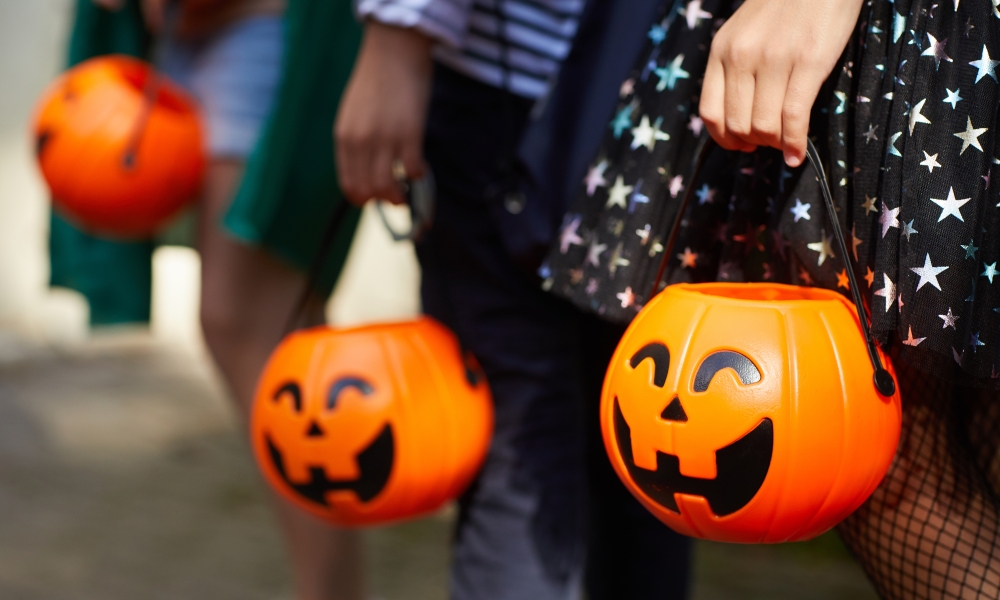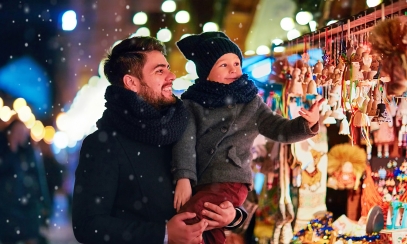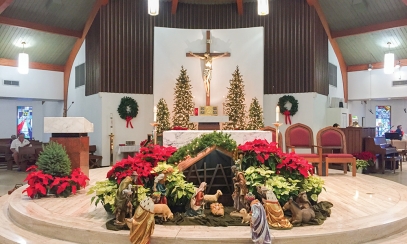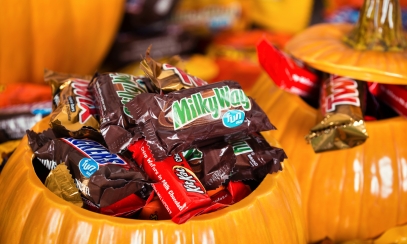
Can Catholics Celebrate Halloween?
October 24, 2023
October 24, 2023
Question: Father Joe, Halloween is the second-largest retail holiday in the United States, and we see decorations, candy, and costumes everywhere we go. As a Catholic, can I dress up and participate in Halloween festivities? Can I allow my children to go trick-or-treating?
Answer: One can dispute Halloween’s origins, whether the Christian or the pagan origin came first. But it is clear that the present holiday has Christian and pagan roots. Halloween’s Christian roots can be traced to the British and Irish festivities for All Hallows’ Eve, while its pagan roots can be found in rituals around autumn and the harvest. The Christian festivities and pagan rituals had similar themes, to strengthen oneself for winter and confront the fear of our mortality and seek assurance of an afterlife.
Christians who focus on Halloween’s pagan roots tend to believe its festivities violate the First Commandment because their rituals sought to appease false gods. Some Christians also see Halloween as having the trappings of witchcraft, black magic, or the occult. These believers fear participating in Halloween's festivities makes one spiritually vulnerable to the Devil’s tactics. These are legitimate concerns, but as said, there is more to Halloween than its pagan roots.
Catholics should understand the practices associated with Halloween also stem from the commemorations of All Hallows Eve, All Saints, and All Souls, which focus on mortality and the need of some souls to be purified after death.
Our ancestors did not merely baptize pagan rituals, they sought to demonstrate — to often uneducated believers — how to understand mortality and purgatory’s purification.
In this sense, Halloween is akin to Mardi Gras, the Day of the Dead, or Carnevale, which ritualize similar themes in other cultures. Catholics should also recall that Christian opposition to Halloween began with Protestantism’s Puritan Reformers. They saw All Hollow’s Eve as tainted with “popery,” and their prohibition of Halloween was influenced by anti-Catholic sentiments.
It would be better to focus not on Halloween’s origins but its current significance in our culture. The Halloween festivities in the United States are a mixed bag for Catholics. There are harmless and playful elements, and at the same time, subtle influences that can lead to distorted notions about the afterlife, romanticizing the macabre and violence or dabbling in the dark arts, all representing genuine spiritual dangers.
Whatever we think about this mixed bag, one should note that the celebration of Halloween has expanded to a month-long extravaganza, which is disproportionate to the day’s legitimate significance. The trend of making a big deal about Halloween also encourages reckless revelry, excessive spending, and, if one is not careful, can create a disordered attachment to the harmful elements in our post-Christian culture’s approach to Halloween.
Our Catholic schools and parish faith formation programs have struggled for some time with how to deal with Halloween and its mixed bag of influences. Most have made accommodations for children within guidelines that make the festivities more of a one-day costume party than participation in the secular practices.
Others have provided alternatives, such as dressing up as one of the saints. This is the way Catholic parents should proceed. Find a way to allow children to participate in a playful and non-threatening way in Halloween while keeping a distance from its spiritually dubious elements and protecting children from erroneous notions.
A more important consideration for Catholics is asking why our society has gravitated to giving disproportionate attention to Halloween and other minor holidays. Part of the answer, of course, is commercialization, our consumer culture wants us to have one day each month to go overboard so they can sell holiday merchandise all year round. However, if we look deeper, we will notice the trend to overdo holidays is a symptom of religion and Christian culture losing a central role in the lives of many people. So, it is natural to seek other ways to meet the need for rituals that bring order and meaning to life, even if superficially.
In our children’s faith formation and the broader mission of evangelization, we should understand these minor holidays as one expression of our culture’s “popular piety,” more to be transformed than condemned. St. John Paul II often taught that it is not enough for Catholics to condemn secular culture’s errors. Instead, Catholics must purify their culture, the pope said, by offering contemporary culture better ideas imbued with the Spirit of the Gospel. We should not be asking how we can protect ourselves from our culture’s disproportionate attachment to Halloween, but what ideas we can present our brothers and sisters that could transform our culture and help people identify better ways to find meaning and order in an anxious, chaotic, and all too random world.



